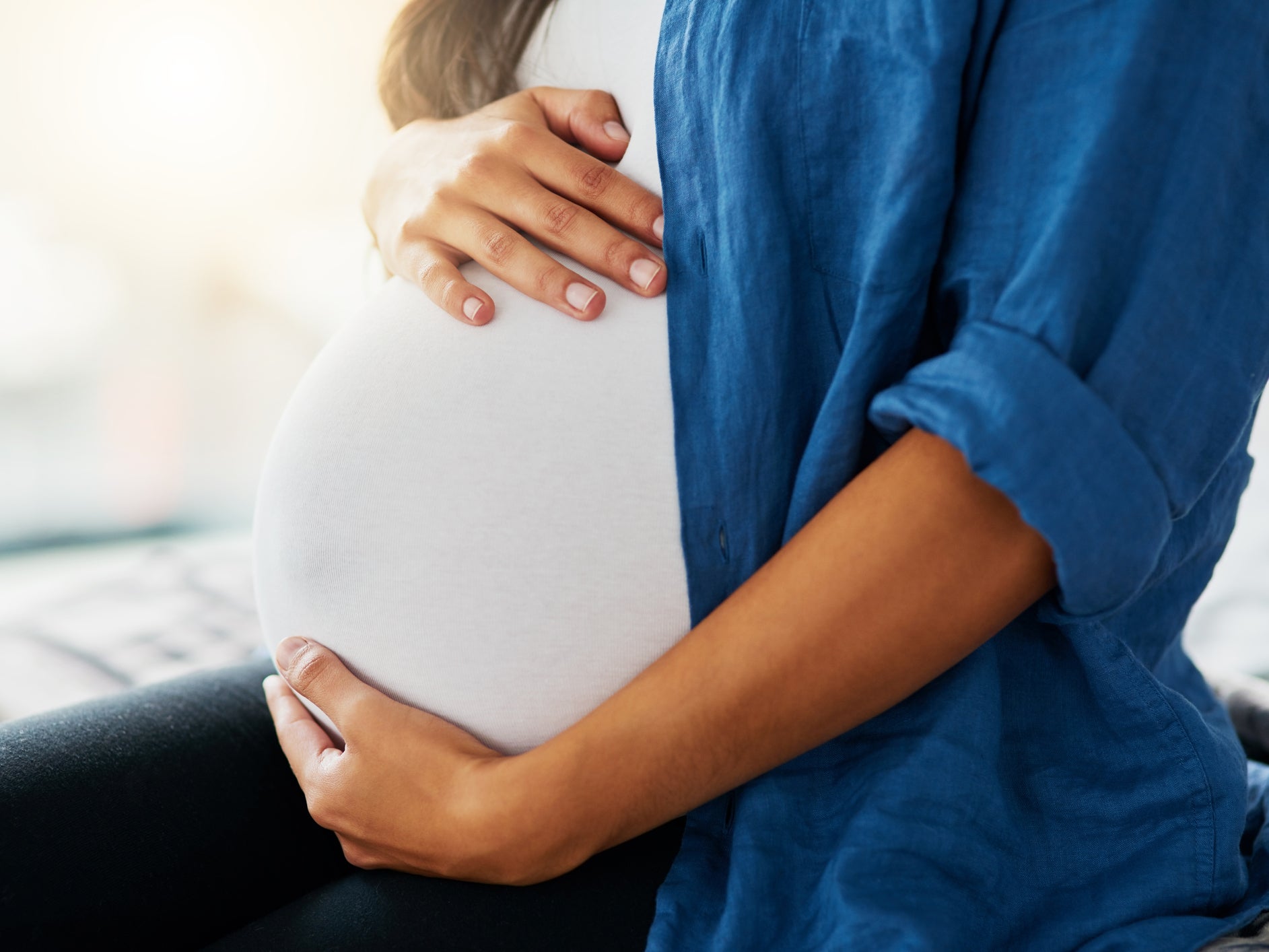Pregnant women’s ‘safety bubble’ expands during third trimester to ‘keep danger at arm’s length’
'During pregnancy the brain adapts to the sudden bodily changes'

A pregnant woman's "safety bubble" enlarges during her third trimester, a new study has discovered.
Scientists from Anglia Ruskin University and the department of obstetrics and gynaecology at Addenbrooke's Hospital carried out an investigation to determine how a mother's sense of peripersonal space alters during pregnancy.
An individual's peripersonal space is the area of space immediately around their body, and is widely regarded as measuring at approximately an arm's length away.
For the study, which was published in journal Scientific Reports, the researchers assessed 85 pregnant women aged between 21 and 43 by having them take part in an audio-tactile reaction time task 20 weeks into their pregnancies, at 34 weeks and eight weeks after giving birth.
The audio-tactile test involved the participants experiencing tapping sensations on their abdomens while being exposed to noise from loudspeakers.
The team also assessed a control group of women who were not pregnant.
The team assessed 37 pregnant women and 19 control women during the first testing session; 28 pregnant women and 17 control women during the second testing session; and 20 pregnant women and 15 control women during the third testing session.
According to the study's findings, a pregnant woman's sense of personal space increases during the third trimester of pregnancy.
The researchers state that this "may represent a mechanism to protect the vulnerable abdomen from injury from surrounding objects".
Dr Flavia Cardini, senior lecturer in psychology at Anglia Ruskin University and lead author of the study, says that the expanded peripersonal space is "the brain's way of ensuring danger is kept at arm's length".
"Pregnancy involves massive and rapid changes to the body both externally, as the body suddenly changes shape, and internally, while the foetus is growing," adds Dr Cardini.
Dr Cardini states that the results of the study indicate that when the body goes through "significantly large changes" during pregnancy, the "maternal brain" also makes changes to the immediate area around the body.
The researchers found that during the second trimester of pregnancy and eight weeks following childbirth, the women did not exhibit any change to their sense of personal space.

Earlier this year, it was reported that exercising during pregnancy can help to protect children from obesity later in life.
While previous studies had shown that exercise by obese women during pregnancy can prove beneficial for their children, this study demonstrated that the same can be said for women who aren't obese.
“Based on our findings, we recommend that women - whether or not they are obese or have diabetes - exercise regularly during pregnancy because it benefits their children’s metabolic health," said Jun Seok Son, a doctoral student at Washington State University who carried out the study.
Join our commenting forum
Join thought-provoking conversations, follow other Independent readers and see their replies
Comments
Bookmark popover
Removed from bookmarks